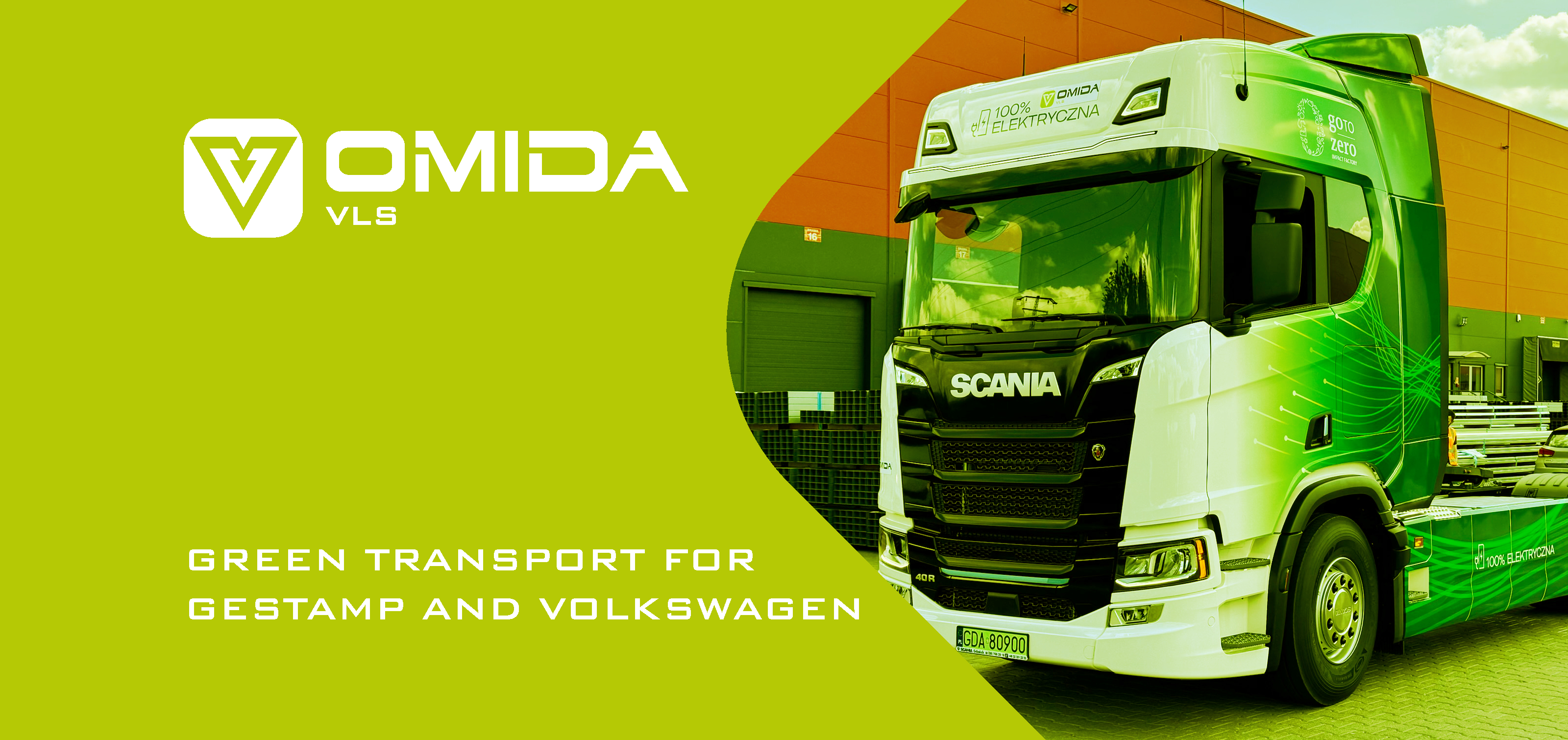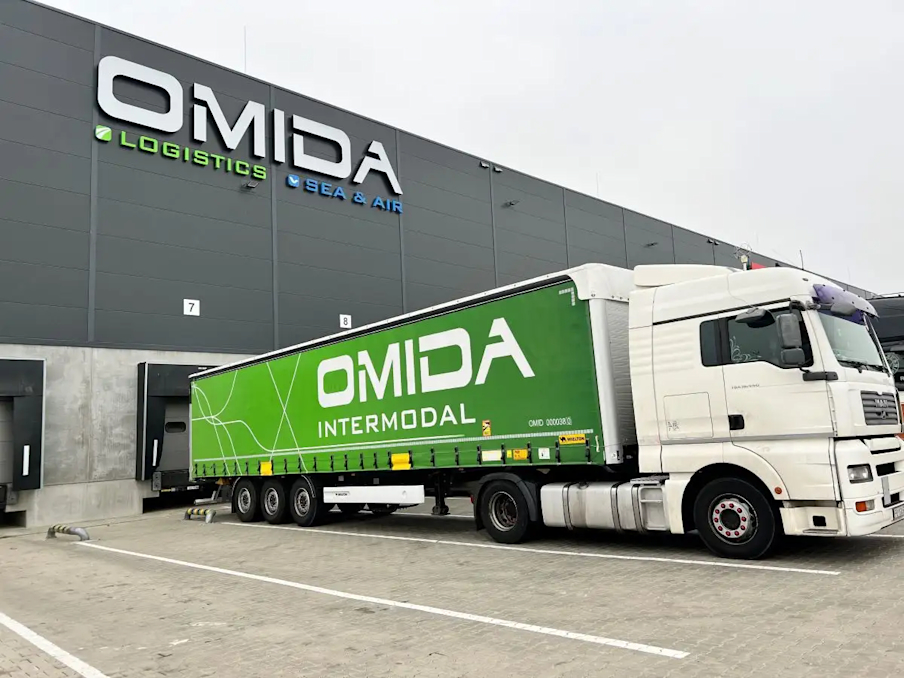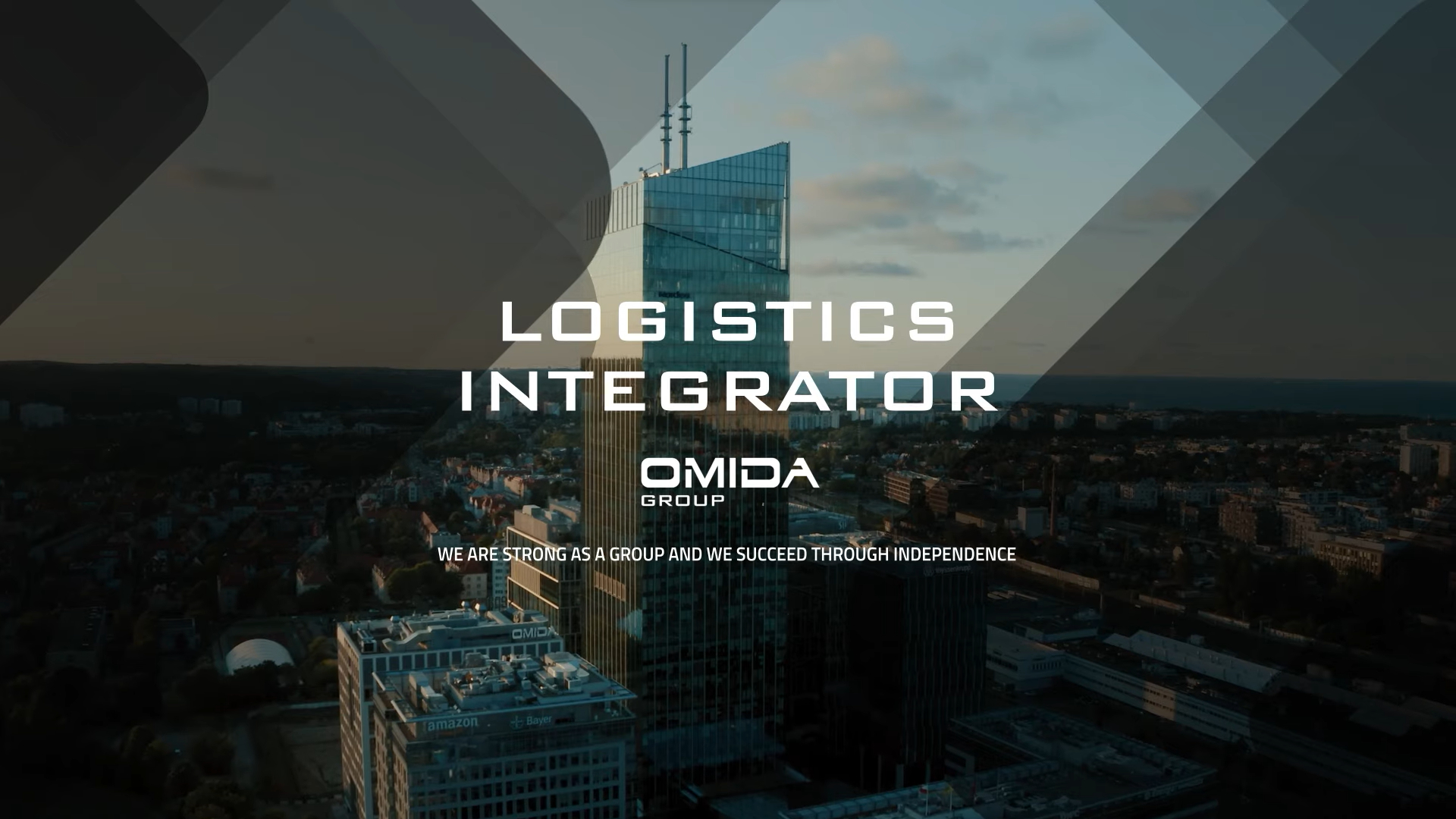Logistics is an indispensable element in business that deals with the coordination and management of processes. Thanks to logistics, companies can increase their efficiency, improve the quality of their services and achieve better financial results. In the following article, we will take a closer look at the definition of logistics, jobs in logistics activities, discuss the processes that occur in companies, and provide a breakdown of these processes by their scope of influence.
From this article you will learn, among other things:
- What is logistics and its importance in managing logistics processes?
- What are the different departments of logistics?
- What are the different jobs in logistics?
- How can logistics be divided by the scope of activities?
- What is the importance of the 7R concept in logistics?
What is logistics? Definition of logistics.
Logistics is a field of management that deals with the planning, organization, control and coordination of processes related to the flow of goods, services and information. The goal of logistics is to ensure the efficiency and effectiveness of logistics processes and increase the efficiency and profitability of the company.

How can logistics processes be distinguished? Logistics departments.
- Transport logistics
- Supply logistics
- Production logistics
- Distribution logistics
Transport logistics
Transport logistics includes a number of activities, such as selecting the optimal mode of transport, specifying the route and delivery time, negotiating terms with carriers, and monitoring order fulfillment. As part of transport logistics, a company must take into account various factors, such as cost, delivery time, quantity and quality of goods, and individual customer requirements.
Organizing the transport of goods or services is a key element in the operations of many companies, especially in industries such as trade, manufacturing, logistics and healthcare. As part of transport logistics, a company can use various modes of transport, such as road, rail or sea, depending on the types of goods, delivery time and available resources. Coordination of processes such as loading, unloading and quality control is also an important part of transport logistics.
Nowadays, due to the fast-growing e-commerce market and increasing customer demands, transport logistics is becoming increasingly complex and demanding. Companies must not only ensure fast and efficient delivery of goods, but also ensure customer satisfaction and build customer trust through professional service and predictability of logistics processes.

Supply logistics
Procurement logistics is a branch of logistics that deals with ensuring an adequate supply of raw materials, supplies and parts necessary for the production of finished goods or the provision of services. It is a key element in running a business, as it ensures the continuity of production processes and enables companies to maintain the quality of their services.
It encompasses many activities, such as identifying and evaluating suppliers, negotiating purchasing terms, monitoring inventory levels, quality control and ensuring continuity of supply. In procurement logistics, a company must take into account various factors such as cost, quality, timeliness and availability of goods.
Procurement logistics is particularly important in industries such as industry, manufacturing and trade, where continuity of supply and quality of raw materials and supplies are key to maintaining the efficiency of production processes.

Manufacturing logistics
Production logistics is a branch of logistics that deals with the management of a company's production processes. It aims to ensure the efficiency and optimization of production processes by minimizing costs, increasing productivity and ensuring the quality of goods produced.
This field encompasses a number of activities, such as planning production processes, controlling inventory, organizing internal transport, managing production on the line, coordinating employees and controlling the quality of produced goods. As part of production logistics, a company must take into account various factors, such as delivery time, production costs, quantity and quality of raw materials, and customer needs.
As part of its production logistics processes, a company can use various tools and technologies, such as information systems, robotics or automation of production processes, to streamline processes and improve efficiency. As a result, companies are able to increase their productivity, effectively manage production and improve the quality of their manufactured goods, which contributes to their competitiveness in the market.

Distribution logistics
This field of logistics includes distribution processes, which involve the delivery of products or services to customers. Distribution logistics aims to ensure the smooth and rapid flow of goods or services from the manufacturer to the customer, taking into account various distribution channels, such as wholesalers, stationary stores or online sales.
Distribution logistics includes a range of activities, such as planning distribution processes, organizing transport, coordinating warehousing and managing customer orders. Efficient logistics is crucial to running a successful retail business. Companies must not only effectively plan and organize all distribution processes, but also take care of customer satisfaction, their needs and the speed of order fulfillment.
Distribution logistics is particularly important in industries such as trade, manufacturing or services, where fast and efficient distribution of goods or services is crucial to achieving business success. Nowadays, due to rapidly developing technology and increasing competition in the market, distribution logistics is becoming more demanding and complex.

What are the jobs in logistics? Freight forwarder, planner, BOK employee, dispatcher and others - discussion.
There are many different jobs in logistics that are crucial to the efficient operation of a company. Here are some of them:
- Freight forwarder - is responsible for organizing the transport of goods or services, negotiating terms with carriers and monitoring the execution of orders.
- Planner - is responsible for planning logistics processes such as transport, warehousing, production and distribution, taking into account available resources and customer needs.
- BOK (Customer Service Desk) employee - is responsible for customer service, taking orders, solving problems and coordinating processes related to the delivery of goods or services.
- Dispatcher - is in charge of coordinating transport and warehousing, assigning orders to drivers and monitoring order fulfillment.
- Warehouse manager - is responsible for the effective management of the warehouse, including receiving and issuing goods, controlling inventory and optimizing processes.
- Logistics Analyst - is in charge of analyzing data on logistics processes to identify areas for improvement and improve the efficiency of operations.
- Transport Specialist - is responsible for organizing the transport of goods or services and selecting optimal means of transport, monitoring shipments and ensuring compliance with regulations and standards.
- Production manager - is responsible for the effective management of production processes, including production planning, quality control and cost optimization.

Types of logistics. Division of logistics by scope of activities
Logistics can be divided by range of influence into several categories:
- Internal logistics - coordination of processes within the company (transport within the plant, inventory control and management of production processes).
- External logistics - coordination of processes outside the enterprise (ensuring continuity of supply, organizing transport, storage, distribution of goods and ensuring customer satisfaction).
- International logistics - deals with processes related to transport, storage, production and distribution of goods or services in the international arena.

How do logistics processes work?
These processes usually involve several steps, which can vary depending on the type of business of the company. Here are some of the steps that logistics activities usually involve:
- Planning - specifying goals, strategies and plans for logistics, taking into account customer needs and available resources. See our video that shows how we tailored our services to an e-commerce client.
- Procurement - ordering and purchasing raw materials, parts or other materials needed to produce goods.
- Manufacturing - producing goods or services, taking into account customers' plans and requirements.
- Warehousing - storing finished products or semifinished products to ensure their continuous supply.
- Distribution - delivery of finished products or services to customers, taking into account individual requirements and needs.
- Transport - organizing the transport of goods or services from point A to point B, considering various modes of transport, costs and delivery times.
- Monitoring - monitoring the fulfillment of orders, controlling inventory levels and collecting feedback from customers.
What does a Logistics Specialist actually do?
A logistics person is responsible for ensuring the effective management of the supply chain, i.e. the entire process from the acquisition of raw materials or products, through their production, storage, transport and delivery to the customer. A Logistics Specialist's tasks include planning and coordinating logistics processes, managing inventory, monitoring product quality and delivering products on time and in the right quantity and quality. A Logistics Specialist also optimizes the cost and efficiency of logistics processes and identifies and manages risks in the supply chain.

What are the responsibilities of a Logistics Specialist?
The responsibilities of a Logistics Specialist depend on the specifics of the company's operations and the position he holds in the organization. Among the tasks of a Logistics Specialist are:
- Planning and organizing logistics processes, taking into account available resources, costs, delivery time, quality and quantity of goods and customer needs.
- Selecting optimal means of transport and organizing internal and external transport.
- Warehouse management, i.e. controlling inventory, planning the loading and unloading of goods and coordinating warehouse work. Watch our video to learn how the process of receiving goods in the warehouse works.
- Planning and organizing production, taking into account market requirements, costs, quality and quantity of raw materials and customer needs.
- Managing distribution processes, i.e. controlling delivery times, organizing transport and coordinating work with suppliers and customers.
- Analyzing data on logistics processes, in order to identify opportunities for process improvement and optimization.
- Monitoring the market and available technologies, in order to introduce new solutions and innovations.
- Managing the logistics team and coordinating work with other company departments, such as sales, production or finance.
What logistics systems do Logistics Specialistss use?
Logistics Specialists use a variety of logistics systems to effectively manage logistics processes in a company. Here are some examples of the most popular logistics systems:
1. Warehouse Management Systems (WMS) - are used to plan, manage and control warehouse operations, such as receiving, storing, moving and shipping goods. WMS enables efficient inventory management, minimizes costs and maximizes warehouse efficiency. Watch our video and learn about the space offered and the automation systems used in Omida S.A.'s warehouse.
2. Transport Management Systems (TMS) - are used to plan and manage transport, including selecting optimal routes, coordinating drivers and managing transport documents. TMS allows saving time and costs related to transport and increasing operational efficiency.
3. Manufacturing Management Systems (MES) - are used to plan, manage and control production processes, including performance monitoring, quality control and production planning. MES enable effective production management, increase productivity and minimize costs.
4. E-commerce systems - are used to sell and distribute goods and services over the Internet. E-commerce systems enable the sale of goods online, management of customer orders, inventory control and coordination of logistics processes.
5. Supply chain management (SCM) systems - are used to plan, manage and control logistics processes along the supply chain, including the management of raw materials, production, warehousing, transport and distribution. SCMs enable efficient management of logistics processes, minimizing costs and increasing productivity.
In addition to the aforementioned systems, Logistics Specialists can also use other tools such as planning and data analysis software, transport fleet monitoring systems, and quality control software.
What is the completion process in e-commerce systems?
Order picking in an online store usually takes place in a warehouse, since most e-commerce companies do not have traditional stationary stores. The in-store picking process involves preparing an order at a dedicated logistics location, regardless of the type of distribution (B2B/B2C). In order to prevent possible damage to the product during transport, the order is properly packed and then shipped to the addressee with the help of the selected carrier.
What is city logistics?
City logistics is a field of logistics that deals with the organization of logistics processes within cities. The goal of city logistics is to ensure the efficient transport of goods and services in the city, minimize traffic congestion and improve the quality of life for residents.

What are logistics costs?
Logistics costs are expenses related to logistics processes, including transport, storage and distribution. Minimizing these costs is important for increasing a company's profits and competitiveness. Improving the efficiency of logistics operations can be achieved by optimizing processes, selecting the best methods of transport, using modern technology and reducing costs associated with quality discrepancies.

What is the 7R concept in logistics?
The 7R concept of logistics is an approach to supply chain management that focuses on delivering products or services to the customer as efficiently as possible. The 7Rs of logistics consist of seven elements that should be implemented to provide the greatest value to the customer. Here is a description of each of the 7R elements:
1. The right goods (Right product) - means providing a product that meets the customer's expectations and is in line with the customer's needs.
2. In the right quantity (Right quantity) - refers to providing the right amount of goods to ensure that the customer's needs are met, without overstocking.
3. At the right time (Right time) - refers to delivering the product at the exact time the customer needs it.
4. To the right place (Right place) - refers to delivering the product exactly where the customer needs it, at the customer's convenience.
5. At the right quality (Right quality ) - refers to delivering a product that meets the customer's quality requirements, according to the customer's expectations.
6. At the right cost (Right cost ) - refers to delivering the product in a cost-effective manner that ensures customer satisfaction while minimizing company costs.
7. To the right customer (Right customer) - refers to delivering the product to the right customer who has a need or demand associated with it.
The 7R logistics concept can be applied to many areas, such as manufacturing, warehousing, transport and customer service. All of the processes from the 7R elements of logistics contribute to the efficiency and effectiveness of the supply chain, which translates into increased customer satisfaction and improved business management performance.
The key role of logistics in business
Logistics plays an extremely important role in business, enabling effective process management and ensuring a smooth supply chain. Logistics departments such as transport, procurement, production and distribution work together harmoniously to ensure the smooth operation of the supply chain.
Continued improvement in logistics, the use of modern tools and technologies, and the flexibility to adapt to changing customer and market needs are vital in a dynamic business environment.
In conclusion, logistics is a key element in the successful management of a business. Its role is to ensure efficiency, provide excellent customer service and achieve better financial results. Improving logistics processes contributes to increased competitiveness and success in the market. Therefore, it is worth investing in logistics to achieve growth and competitive advantage in today's business world.
Omida VLS - Logistics Services
We offer a wide range of logistics services to help you effectively manage your company's logistics processes.
Contact us today to discuss your logistics needs and find out how we can help you. Omida VLS provides professional logistics services that will accelerate your business growth and improve your bottom line.
What logistics services does Omida VLS offer?
We offer comprehensive logistics services for e-commerce stores, contract logistics, and a logistics center. Find out how our team can service your e-Business.
Temporary storage warehouse - see our warehouse.
We ensure proper execution of temporary storage operations and storage at proper temperatures and humidity. Take advantage of Omid's logistics services. We have our temporary storage warehouse, which is an A-class warehouse in Wypędy near Warsaw. Having such a warehouse, allows you to make a customs declaration.
To streamline transport processes in Poland and Europe, we encourage you to contact us by email and phone, as well as through the carrier form available on the right. Contact us now!



